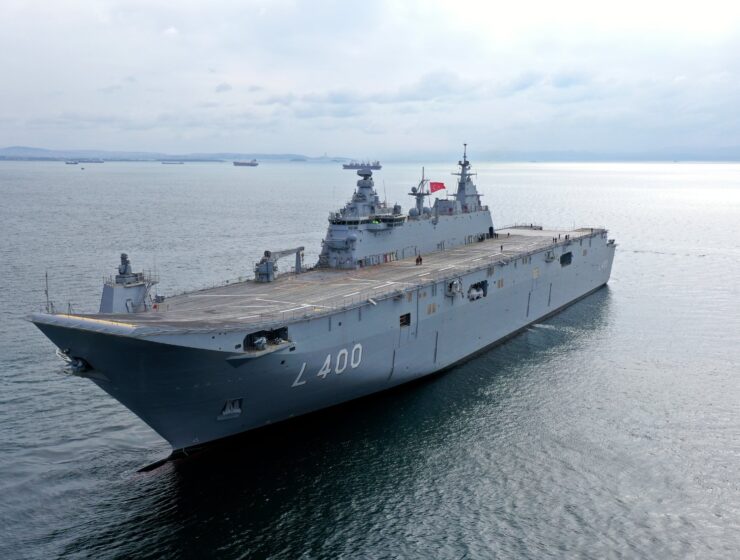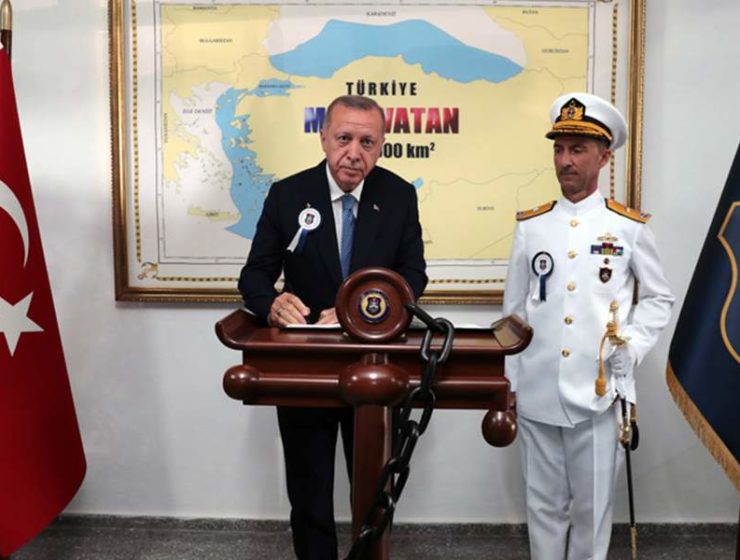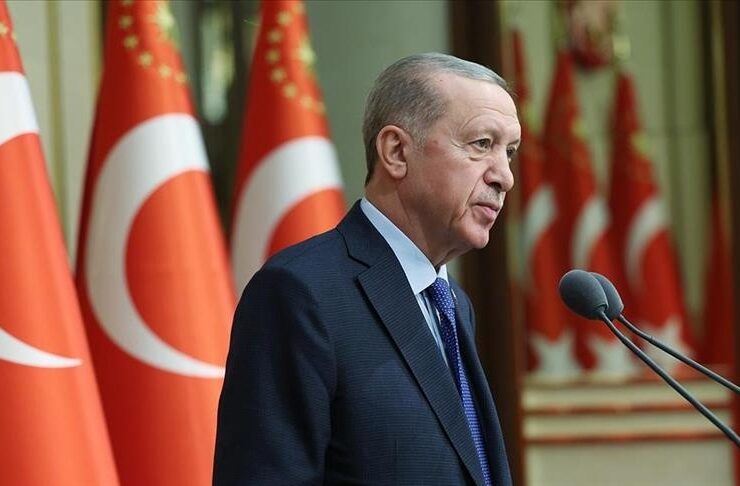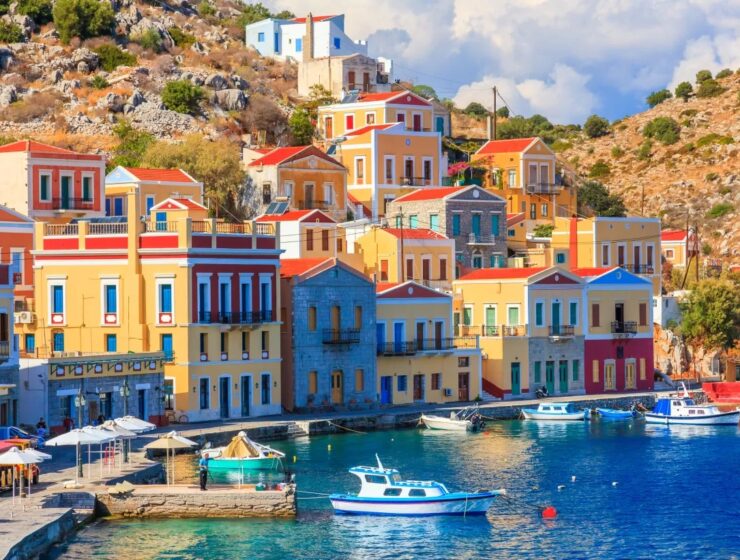Right-wing MP Thanos Plevris defended Navy cadets who chanted anti-Turkey slogans during Greece’s Independence Day parade, dismissing the backlash as overblown. Speaking on Skai TV, he argued the slogans reflect combat training and suit the occasion, while criticizing Turkey’s policies and rejecting calls to punish the trainees.
Tag: Blue Homeland
Tripoli appears to follow the beginning of the median line between Greece and Libya rather…
Renewed tensions between Greece and Turkey threaten planned diplomatic talks. Turkey’s assertive actions in the Aegean and Eastern Mediterranean, including challenging Greek sovereignty and maritime boundaries under its “Blue Homeland” doctrine, are jeopardizing a potential summit between their leaders. These actions, coupled with disagreements over the interpretation of existing agreements and Turkey’s stance on the status of Greek islands, are creating a difficult environment for negotiations. Meanwhile, both nations are also navigating the evolving foreign policy landscape under the Trump administration.
Greek Defense Minister Nikos Dendias warned of Turkey’s neo-Ottoman ambitions, citing their pursuit of regional resources and controversial geopolitical activities in the Aegean and Middle East. He expressed concern over potential claims on Greek islands and the destabilizing impact on NATO, particularly given the ongoing Russia-Ukraine conflict. Dendias suggested that the US could play a role in urging Turkey to respect international law. He also highlighted the “Blue Homeland” military exercises as evidence of this concerning trend.
In a recent development that has escalated tensions between Turkey and Greece, Turkish media outlets have accused Greece of militarizing the Aegean islands, which were granted to Greece under specific conditions. The accusations come amid ongoing disputes over territorial and maritime rights in the region.
The launch of two new Turkish frigates highlights Ankara’s expanding naval ambitions in the Mediterranean, Aegean, and Black Seas, bolstered by its growing domestic defense industry. Rooted in the “Blue Homeland” doctrine, this strategy has fueled maritime disputes with Greece and Cyprus over boundaries and resources. With 29 ships under construction and a defense budget of $45 billion for 2025, Turkey aims to assert itself as a regional and global naval power, reducing reliance on Western suppliers and promoting its advanced unmanned surface vehicle programs.
In a landmark operation, Greek F-16 Viper jets completed their first non-exercise interception mission, responding to Turkish airspace violations during the “Blue Homeland” military exercise. The swift response highlighted Greece’s upgraded air defense capabilities amid ongoing regional tensions.
Pakistan sent its fleet to the Eastern Mediterranean to participate in a major naval exercise…
The Greek Foreign Ministry responded to Devlet Bahçeli’s claims that the Dodecanese Islands were “stolen” from Turkey, affirming Greece’s sovereignty over the islands as governed by the 1947 Paris Peace Treaty. The Ministry reiterated Greece’s right to defense under International Law and condemned revisionist views on sovereignty.
Turkey’s recent military exercise, Mavi Vatan-2025 (Blue Homeland 2025), has been interpreted as a clear…
Turkey launched “Blue Homeland 2025,” a major air and naval exercise across the Aegean, Mediterranean, and Black Seas, showcasing its growing military might and commitment to its “Blue Homeland” doctrine. President Erdoğan highlighted new missile developments and warship construction, emphasizing Turkey’s determination to project power in the region while maintaining that the investments are for peace, not war.
Turkey is launching a major air and naval exercise, “Blue Homeland 2025,” across the Aegean, Mediterranean, and Black Seas from January 7th-16th. The large-scale operation will involve 87 surface vessels, 7 submarines, drones, aircraft, and 20,000 personnel, showcasing Turkey’s maritime strength. A Distinguished Visitors’ Day is scheduled for January 9th at the Aksaz Naval Base, opposite Rhodes.
A map published by the European Commission’s Maritime Spatial Planning Platform (European MSP Platform) has…
Why are Greece and Turkey on the brink of a potential military conflict? These two…
The European Union’s recent report highlights rising tensions with Turkey over key issues such as the conversion of Hagia Sophia into a mosque, the aggressive “Blue Homeland” doctrine, and prolonged disputes in the Aegean and Cyprus. These developments pose challenges to EU-Turkey relations and emphasize the need for alignment with European principles.
Prime Minister Kyriakos Mitsotakis and Turkish President Recep Tayyip Erdogan held a significant meeting on the sidelines of the United Nations General Assembly in New York, marking their second encounter in recent months. Their discussions primarily centered on migration cooperation and the contentious Cyprus conflict, with both leaders addressing ongoing tensions surrounding the Greek-Turkish maritime dispute. Despite low expectations for breakthroughs, Erdogan reiterated Turkey’s desire for stability in the region while reaffirming claims over territories in the Eastern Mediterranean.
Turkey has introduced the controversial “Blue Homeland” doctrine into its 9th-grade geography curriculum, teaching students about Turkey’s maritime claims in the Aegean and Eastern Mediterranean. Despite being a topic of international dispute, the curriculum aims to highlight Turkey’s perspective on its geographical interests without providing explicit map boundaries.
Greek Prime Minister Kyriakos Mitsotakis has expressed doubts about resolving Greece’s longstanding disputes with Türkiye, highlighting the necessity for continued defense investments. Speaking at the Thessaloniki International Fair ahead of his meeting with President Recep Tayyip Erdoğan, Mitsotakis acknowledged the challenges in improving relations but emphasized the need to bolster Greece’s armed forces as a precaution.
“We will not take a single step back in protecting our ‘Blue Homeland’. Everyone should know this. We will continue to defend the rights of Turkey and Turkish Cypriots to the end.”
Greece and Turkey are at odds again after Ankara issued a NAVTEX authorizing research by its vessel “Akdeniz Apastirma-1” in an area claimed by Greece. This move directly contests Greece’s authority to manage maritime operations in the region.




















